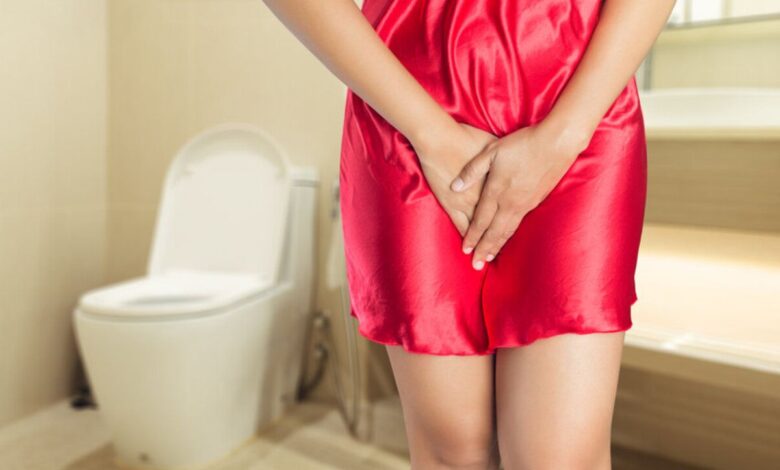Frequent urination at night, nocturia: What's it, causes, symptoms, diagnostics, treatment, prevention

Urinating more at night; Nocturia
What is nocturia?
Nocturia – is a medical term, which means frequent nighttime urination. It can cause significant inconvenience., interrupting normal sleep and affecting quality of life.
Usually at night the amount of urine, produced by the body, decreases. This allows most people to sleep from 6 to 8 hours without urination.
Nocturia can be the result of various physiological and pathological processes., and understanding its causes and treatment play an important role in maintaining health.
Causes of nocturia
Drinking too much fluid in the evening can lead to more frequent urination at night. Caffeine and alcohol after dinner can also lead to this problem..
Other common causes of nighttime urination are:
- Bladder or urinary tract infection
- Drinking large amounts of alcohol, caffeine or other liquids before bed
- Increased prostate (benign prostatic hyperplasia, DGPŽ)
- Pregnancy
Other conditions, which can lead to problems, include:
- Chronic renal failure
- Diabetes
- Drinking too much water
- Heart failure
- High levels of calcium in the blood
- Some medications, including diuretics (Diuretic)
- Nesaharnыy diabetes
- Swelling of the legs
Frequent awakening at night to urinate may also be associated with obstructive sleep apnea and other sleep disorders.. Nocturia may disappear, when your sleep problem is under control. Stress and anxiety can also cause, what do you wake up at night.
Symptoms of nocturia
The main symptom of nocturia is the need to wake up at night to urinate.. Additional symptoms may include:
- Decreased quality of sleep: Frequent awakenings at night can lead to restless sleep and daytime fatigue.
- Frequent urination during the day: In some cases, nocturia may overlap with frequent urination throughout the day..
- Decreased urine volume: Urination at night may be accompanied by a decrease in urine volume during daytime urination.
When to see a doctor
If you experience frequent nighttime urination and it starts to affect your sleep and overall health, it is recommended to consult a doctor. Besides, should see a doctor, if the nocturia is accompanied by other unusual symptoms or if you have a medical condition, that may be associated with this symptom.
Questions, which the doctor may ask
When contacting a doctor with nocturia, the doctor may ask the following questions:
- How long do you experience frequent nighttime urination?
- How often do you wake up at night to urinate?
- Do you have associated medical conditions, such as diabetes or kidney failure?
- Do you drink plenty of fluids before bed?
Diagnosis of nocturia
Diagnosis of nocturia may include:
- medical history: Your doctor may ask you questions about your lifestyle, medical history and symptoms.
- Physical examination: The doctor may do a physical examination, to rule out other potential causes of symptoms.
- Analysis of urine: A lab test of urine can help detect the presence of infections or other abnormalities..
- Additional research: In some cases, additional tests may be ordered for you., such as blood tests or an ultrasound of the bladder.
Tests, who may be assigned, include:
- Blood sugar (glucose)
- Blood urea nitrogen
- Osmolality of blood
- Serum creatinine or creatinine clearance
- Serum electrolytes
- Analysis of urine
- Urine concentration
- Urine culture
- You may be asked to keep a record of, how much liquid you drink and how much urine is excreted at a time (urination diary).
Treatment of nocturia
Treatment for nocturia depends on its cause.. Your doctor may suggest the following approaches:
- Management of the underlying disease: If nocturia is associated with other medical conditions, such as diabetes or kidney failure, treatment will focus on managing these conditions.
- Lifestyle Changes: Your doctor may recommend limiting fluid intake before bed and other lifestyle changes..
- Preparations: In some cases, the doctor may prescribe medication, eg, diuretics or drugs, improve bladder function.
Prevention of nocturia
To prevent nocturia, it is recommended to follow some recommendations:
- Fluid restriction: Try to limit fluid intake especially before bed..
- Dieting: In some cases, a change in diet, including reduced consumption of salt and specific foods, may help manage symptoms of nocturia.
Remember, that nocturia can be a sign of various conditions, therefore it is important to seek medical advice for accurate diagnosis and treatment.
Used sources and literature
Carter C. Urinary tract disorders. In: Rakel RE, Rakel DP, eds. Textbook of Family Medicine. 9th ed. Philadelphia, PA: Elsevier Saunders; 2016:chap 40.
Elsamra SE. Evaluation of the urologic patient: history and physical examination. In: Party AW, Domochowski RR, Kavousi LR, Peters CA, eds. Campbell-Walsh-Wein Urology. 12th ed. Philadelphia, PA: Elsevier; 2021:chap 1.
Landry DW, Bazari H. Approach to the patient with renal disease. In: Goldman L, Schafer AI, eds. Goldman-Cecil Medicine. 26th ed. Philadelphia, PA: Elsevier; 2020:chap 106.
Lightner DJ, Gomelsky A, Souter L, Vasavada SP. Diagnosis and treatment of overactive bladder (non-neurogenic) in adults: AUA/SUFU Guideline Amendment 2019. J Urol. 2019;202(3):558-563. PMID: 31039103 pubmed.ncbi.nlm.nih.gov/31039103/.
Samarinas M, S is important. The relationship between inflammation and LUTS/BPH. In: Morgia G, ed. Lower Urinary Tract Symptoms and Benign Prostatic Hyperplasia. Cambridge, MA: Elsevier Academic Press; 2018:chap 3.
